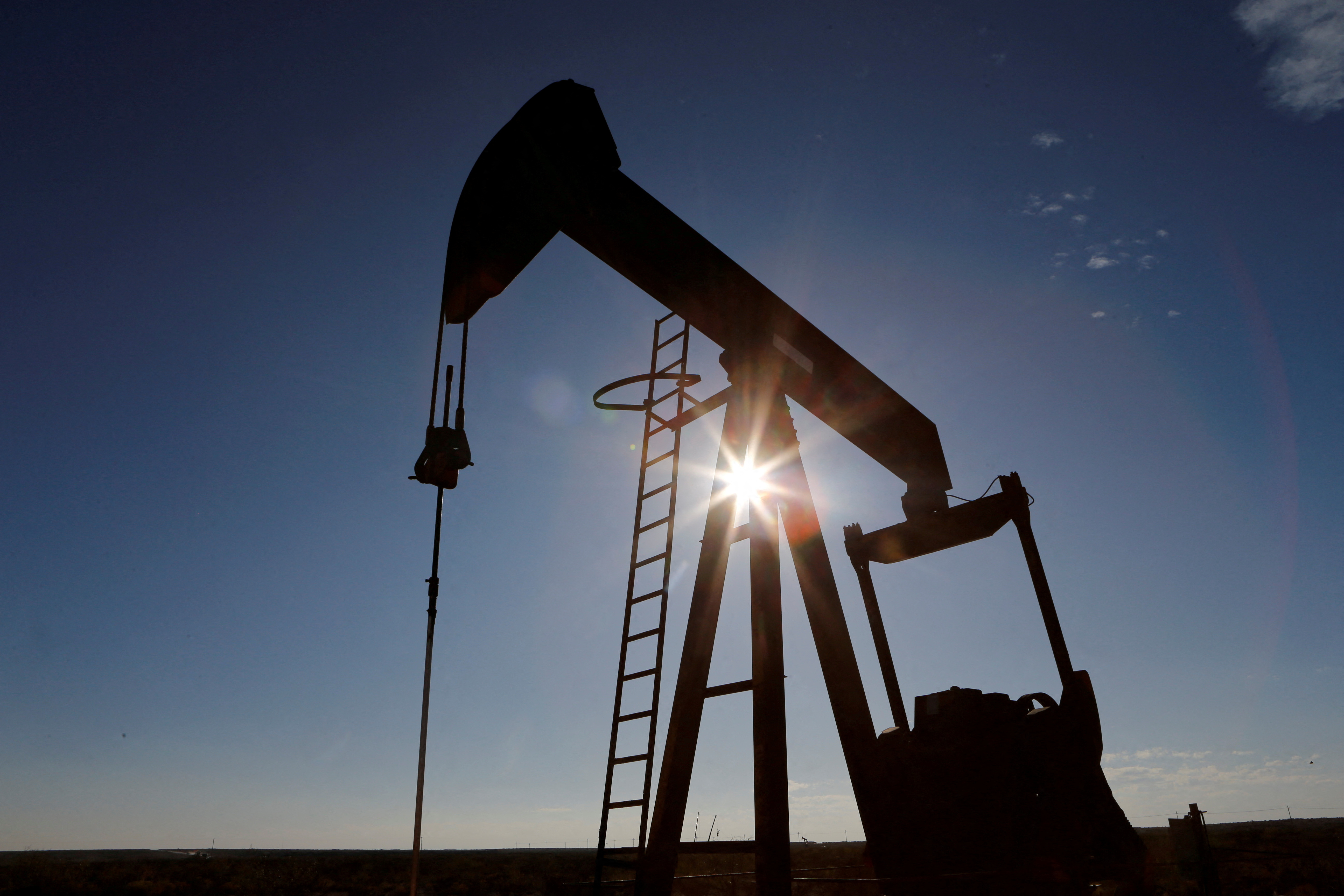[ad_1]

The sun is seen behind a crude oil pump jack in the Permian Basin in Loving County, Texas, U.S., November 22, 2019. Picture taken November 22, 2019. REUTERS/Angus Mordant/File Photo Acquire Licensing Rights
SINGAPORE, Nov 15 (Reuters) – Global oil markets are expected to be fairly balanced, with a slight surplus next year as demand and non-OPEC supply growth are exceeding expectations, the global head of research at Vitol (VITOLV.UL), the world’s largest independent oil trader, said on Wednesday.
Oil demand globally has exceeded 2019 levels and is expected to continue growing as oil intensity – the volume of oil consumed per unit of GDP – for most economies has returned to pre-pandemic levels except in the United States, Giovanni Serio said at the FT Commodities Asia Summit.
Supply, on the other hand, needs to be constrained given additional cuts from major producers such as Saudi Arabia, he said, despite low investments in recent years. Production growth from non-OPEC countries has also surpassed previous highs and continues to grow, while output from Nigeria has surprised on the upside, he added.
“Demand is at 2.3 million barrels per day higher than 2019 and the Saudis have to give a lollipop producing at 9 million barrels per day to balance the market,” Serio said.
He added that demand has exceeded expectations and supply needs to be constrained at a level that is only marginally higher than the level of Saudi production during COVID-19.
Global crude price Brent has weakened to just above $82 a barrel from a 2023 high in September near $98. Concern about economic growth and demand has pressured prices, despite support from supply cuts by OPEC and its allies, and conflict in the Middle East.
The International Energy Agency (IEA) on Tuesday raised its oil demand growth forecasts for this year and next despite slower economic growth in nearly all major economies.
The refining sector is “experiencing a potentially last growth spurt” and could go through a soft patch next year, but capacity could tighten again in 2028-2035 amid low investments, Serio said.
On refined fuels, Serio said it is premature to say gasoline demand in China has peaked as sales of gasoline cars are still holding at steady levels.
“If you look at the growth from their gasoline car fleet, we’re still expecting 11 million addition to the car fleet, net additions next year. And this year 12 million cars, new cars in China, they are gasoline cars and net addition to their fleet,” Serio said.
Meanwhile, demand for bunkering, or marine fuel, is flatlining because of improved efficiency for ships and the growing use of alternative fuels, he added.
Serio expects jet fuel demand to return to pre-COVID 2019 levels next year and added that demand for this fuel is not likely to peak until after 2040 as the sector is too hard to decarbonise.
Reporting by Muyu Xu and Trixie Yap; Writing by Florence Tan; Editing by Christian Schmollinger and Edwina Gibbs
Our Standards: The Thomson Reuters Trust Principles.
[ad_2]
Source link
